Sponsored by Chinese Ecosystem Research Network (CERN), organized by South China Botanical Garden, Chinese Academy of Sciences (SCBG-CAS), and co-organzied by the secretariat of the scientific committee of CERN, the “International Long Term Ecological Research Network (ILTER) Next Generation Workshop” was held from 16 to 21st April 2018 in Zhaoqing, Guangdong. Professor Michael Mirtl, Academician Fu Bojie, and Professor Zhou Guoyi served as the chairmen of the conference organizing committee. Three long term ecological research stations in SCBG, including Dinghushan station, Heshan station and Xiaoliang station were in charge of workshop organization.
Participants of the workshop were consisted of about 30 representatives from CERN as well as the management and executive committees of various research institutes of ILTER, including National Ecosystem Observatory Network (NEON), The Terrestrial Ecosystem Research Network (TERN), LTER-Europe, The Zones Ateliers, LTER-France, Finnish Long Term Socio-Ecological Research Network (FinLTSER), Japan Long Term Ecological Research Network (JaLTER), South Africa Environmental Observation Network (SAEON), Integrated Carbon Observation System (ICOS), Analysis and Experimentation on Ecosystems (AnaEE). Academician Fu Bojie from Research Center for Eco-Environmental Science, Chinese Academy of Sciences, Yu Xiubo from CERN secretariat and Yang Ping from CERN office have attended the workshop. Focusing on the bottleneck problems in long term ecological research, participants have shared recent ten years’ experiences and lessons on the operation and management of different research platforms. Participants also discussed issues on the construction, maintenance, data management of long term ecological research platforms as well as the integration of ecological observation, experimental facilities and scientific research.
Six Chinese representatives have given reports successively during the workshop: Academician Fu Bojie (Global Dryland Ecosystem Programme (Global-DEP) — A Platform for Global Research Collaboration on Dryland Ecosystem), Yu Xiubo (Overview of Chinese Terrestrial Ecosystem Observation Network: CERN next generation research infrastructure), Wang Shaoqiang (Subtropical forest productivity monitoring: from vegetation index to chlorophyll fluorescence), Zhou Guoyi (Responses and Acclimation of Forest Ecosystem Functions to Global Environmental Changes), Li Zhi’an (Long-term Restoration of Soil Stable Carbon Storage on Degraded Tropical Forest), Mo Jiangming (Can N saturated forests continue to fix nitrogen). These reports introduced the long-term observations and research achievements of the CERN station and its ongoing work to our international colleagues.
During the workshop, participants visited Dinghushan Forest Ecosystem Research Station on April 19. The staff members of Dinghushan station have spared no effort to prepare for this field trip in order to show to participants the image of the Dinghushan station and managed to give a full display of the long-term observations, scientific and research, sharing of data and resources, as well as services (demonstration and science popularization) of the station. Firstly, taking advantage of the timing of the 40th anniversary of Dinghushan station and the 30th anniversary of CERN, the station has prepared both the Chinese and English propaganda film of the station, which was first played in this workshop, and contributed a lot to its publicity. Secondly, all the researchers, staffs and students took an active part in the demonstration of Dinghushan station. Professor Zhou Guoyi, the director of Dinghushan station has taken lead in introducing the exhibition rooms, transmission and management network of information system, catchment areas, and water level wells of the station. Graduate students introduced each monitoring and experimental sites and the corresponding research progress with detailed poster presentation and clearly oral presentation. Through this activity, the graduate students have made significant progress in their capacities in presentation and communication. Moreover, they were also offered a precious opportunity to take advice from experts home and abroad. This field trip has given a full embodiment of the conscientiousness, cohesiveness, solidarity and mutual assistance of Dinghushan station. Afterwards, the graduate students have made a summary of and expressed their feelings about this event, and also shared their understanding of the station observation and research achievements as well as their feelings on joining in the Dinghushan station. It is hoped that more event like this will be held in the future to better promote the academic communication and cooperation of the station on an international scale, to increase its international influence and to facilitate the cultivation of outstanding ecological talents as well.
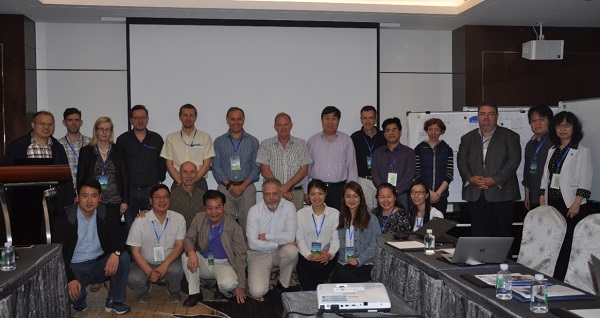
Group photo in the meeting room.
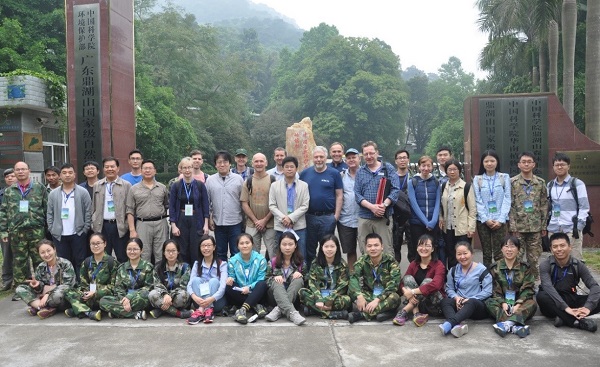
Group photo taken at the entrance of the Management Bureau of Dinghushan National Nature Reserve on April 19, 2018.
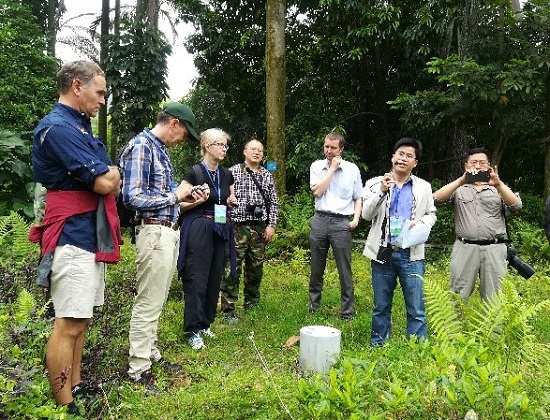
Professor Zhou Guoyi was introducing the work in groundwater level monitoring.
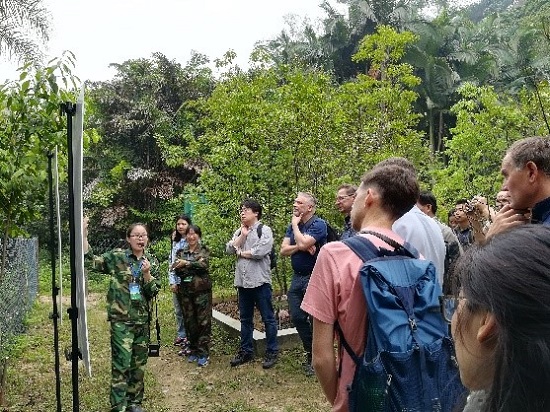
An introduction to the experimental platform of forest ecosystem translocated down an elevation gradient at Miaopudi.
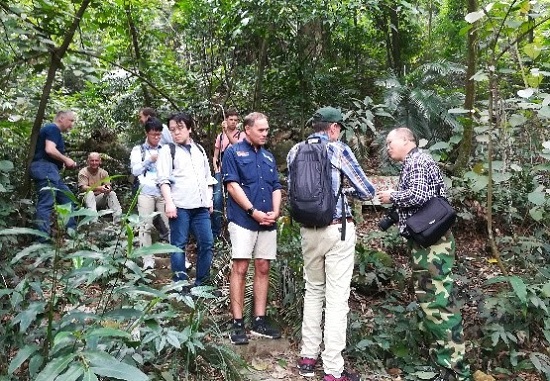
An introduction to the monsoon evergreen broadleaved forest permanent plot.
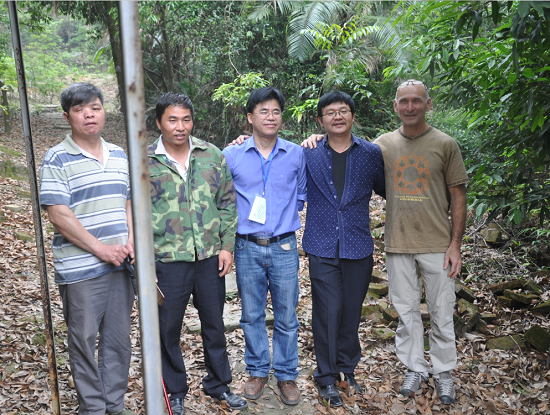
The Chairman of ILTER Professor Michael Mirtl , the director of Dinghushan station
Professor Zhou Guoyi and station staffs responsible for long-term monitoring Mr. Meng Ze, Wu Donghai, and Mo Dingsheng